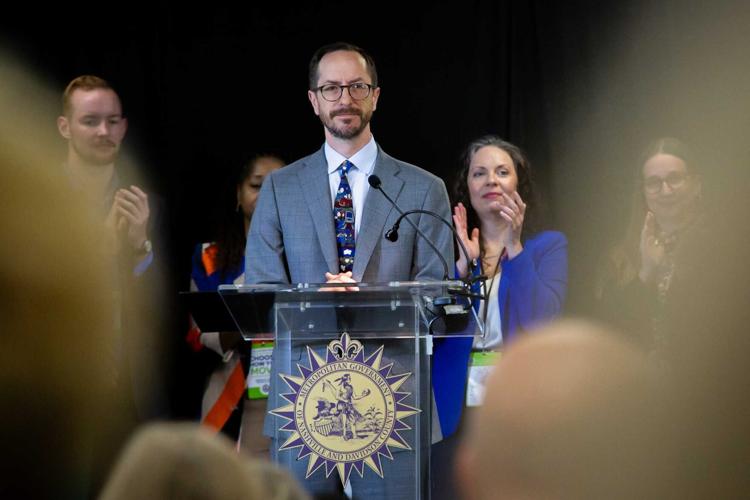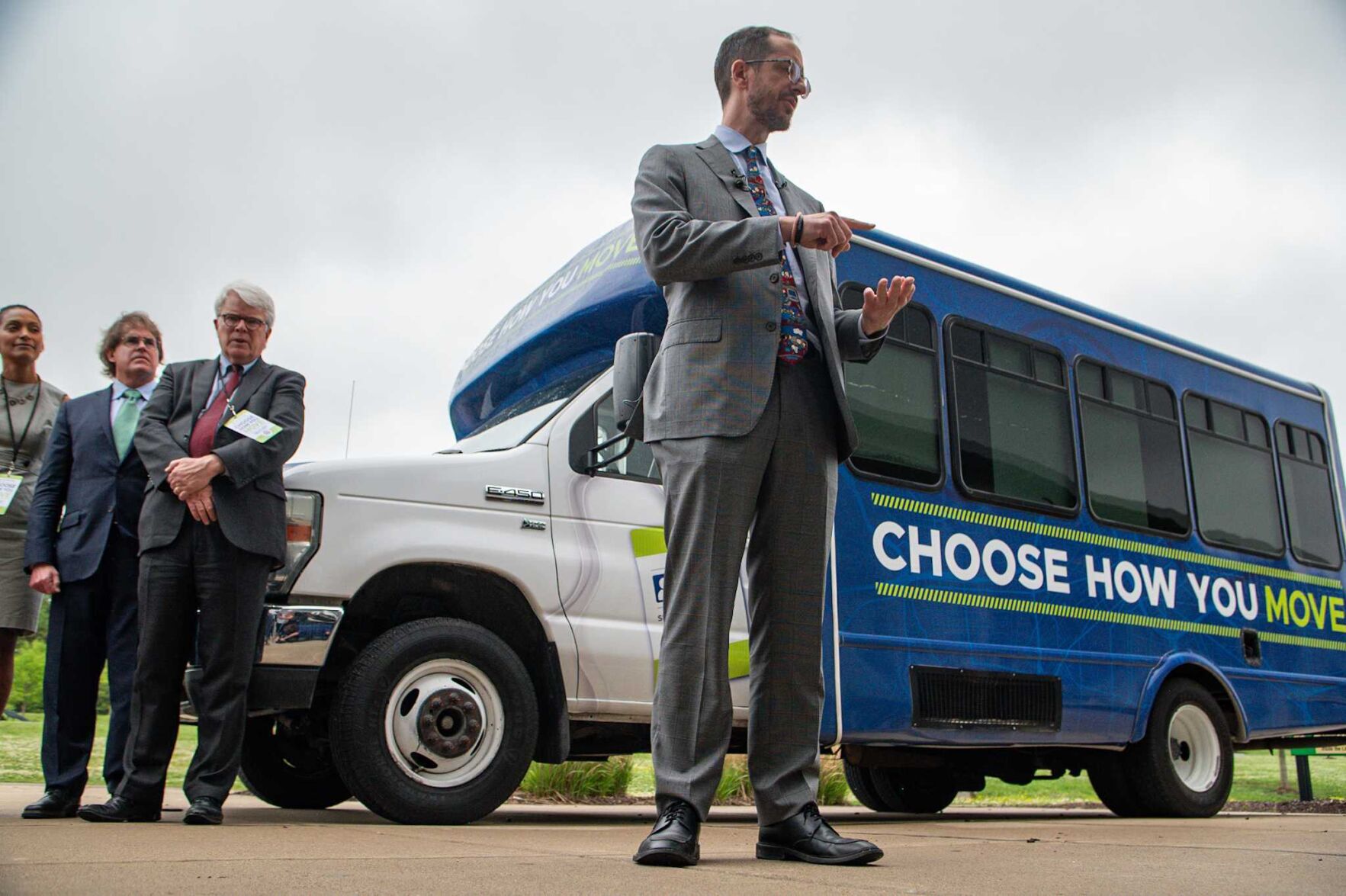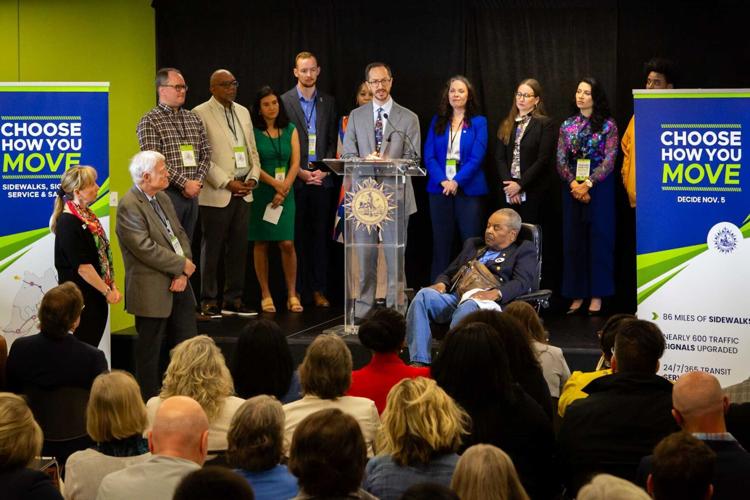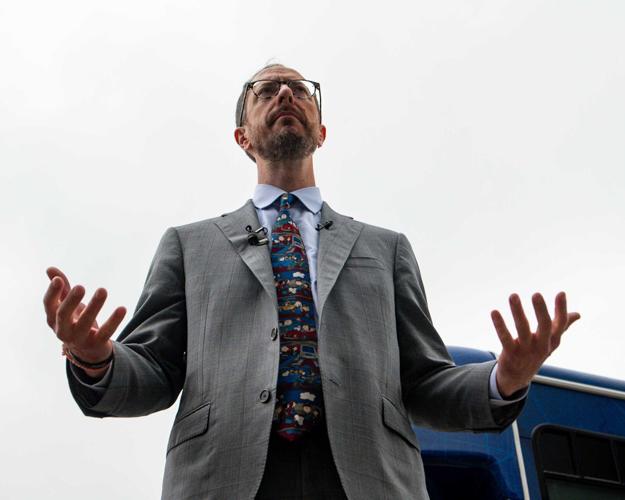Nashville voters have more details about the city’s much-anticipated transit referendum, which could bring new transit centers, 24/7 transit service, sidewalk improvements and modern traffic signals to the city. The plan, which — pending approval by the comptroller and the Metro Council — will cost $3.1 billion and be on ballots for the Nov. 5 election, would create a dedicated funding source for transit drawn from a 0.5 percent bump in Davidson County sales taxes.
Proposed improvements will have an initial cost of $3.1 billion, with $111 million in recurring costs, according to plan documents provided after the event.
Mayor Freddie O’Connell and representatives of Nashville State Community College, the Tennessee Immigrant and Refugee Rights Coalition and other community groups unveiled the plan at Antioch’s Southeast Community Center Friday morning. O’Connell, a longtime transit advocate, won the mayoral race in 2023 on a platform that included bringing a transit referendum to voters. The announcement follows several meetings by O'Connell's Technical Advisory Committee and Community Advisory Committee.
“It’s not a new conversation, but it is a new opportunity,” O’Connell said. “It’s an opportunity to move after being stuck for so long. It is an opportunity to invest in ourselves and be able to make our city go.”
The plan, dubbed Choose How You Move, focuses on pedestrian improvements, bus service upgrades and new traffic signal technology. Highlights include:
12 new transit centers in SoBro, East Bank, Antioch, West Nashville, Madison, Nolensville, Donelson, TSU, Skyline, Vanderbilt Center, Bellevue and the Nashville International Airport
86 miles of new sidewalks and safety improvements at intersections identified as high-injury intersections
54 miles of high-capacity transit corridors, dubbed “All Access Corridors.” Corridors, which could include bus-only lanes for bus rapid transit lines, would be built along existing bus routes with high ridership, including Murfreesboro Pike, Gallatin Pike, Dickerson Pike/East Bank Corridor, Nolensville Pike Corridor, Charlotte Pike and various downtown routes.
Bus route extensions, increased bus frequency and 24/7 service along certain routes
Metropolitik: Modest scope, supportive polling and community contacts lay groundwork for O’Connell’s April 19 unveiling
O’Connell said Friday that the local sales tax increase would generate more than $150 million per year and fund around 46 percent of transit improvements. The rest would come from state and federal funds and bonds.
The plan does not include funding for light rail, which was a key feature of the city’s 2018 $5.4 billion transit referendum. That plan, backed by embattled then-Mayor Megan Barry, failed by a nearly 2-to-1 margin.
“[This] has a lot more basis in direct community input,” O’Connell said when asked about how this plan compares to the 2018 referendum. “We are trying to put our major investments in things that would have near-term impact and immediate availability for people. It’s very practical.”
Public accounting firm KraftCPAs will now review the plan and must refer it to the state comptroller for approval by May 31. From there, the mayor’s office must submit the plan to Metro Council by June 7, when councilmembers will review and vote on the plan.









